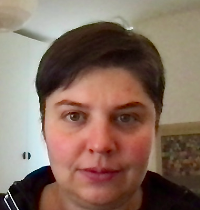
Sara Assecondi
|
|
Development and validation of a self-administered cognitive screening |
|
()
Friday 19 January 2024
Title: Development and validation of a self-administered cognitive screening Description: Neuropsychological screenings usually require in-person administration by qualified personnel. The time available to the clinician, the inability to reach a large population, and the variability in the administration and scoring of screening tests, are factors limiting the widespread dissemination of campaigns for the early detection of cognitive pathologies. We have adapted SATURN, a test designed for self-administration and automatic scoring, and validated on economic tablets, for use via online platforms. This project aims to evaluate the relation between dementia risk factors and cognitive capacity via an online self-administered approach. Student role: data management, statistical analysis
|
|
|
|
Graph theory in the study of individual differences |
|
()
Friday 19 January 2024
Title: Graph theory in the study of individual differences Description: In understanding the impacts of cognitive training, individual differences emerge as a crucial factor. Each individual's unique cognitive and behavioral traits exert a significant influence in shaping the outcomes of cognitive training protocols. Each individual possesses a distinct cognitive profile, shaped by the intricate interplay between various cognitive and behavioral domains, which ultimately influence her performance. This research project aims to leverage graph theory to delineate the interrelationships between cognitive domains, shedding light on how these individualized profiles contribute to the overall performance and effectiveness of cognitive training interventions. Student role: data management, statistical analysis |


